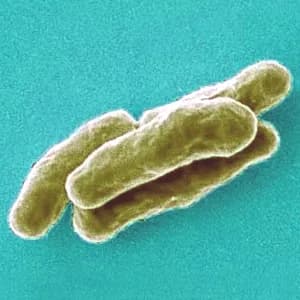
The Influence Of Fat When Gut Bacteria Is Reduced By Antibiotics
A study led by University of Cincinnati (UC) lipid metabolism researchers lends additional insight into how bacteria in the gut, or lack thereof, influences intestinal mast cells (MMC) activation and perhaps fat absorption. The study, "Antibiotics Suppress Activation of Intestinal Mucosal Mast Cells and Reduce Dietary Lipid Absorption in Sprague-Dawley Rats," is currently available in the online edition of Gastroenterology.
"A change in the absorption of fat is very important for the development of obesity studies," says the study's principal investigator Patrick Tso, PhD, Mary Emery Professor of Pathology and Laboratory Medicine at the UC College of Medicine. According to the National Institute Diabetes and Digestive and Kidney Diseases of the National Institutes of Health (NIH), overweight and obesity are risk factors for Type 2 diabetes, heart disease, high blood pressure, and other health problems. In the study, funded by NIH R01 DK092138, Tso and his team compared intestinal fat absorption and mast cell activation in rodents placed on antibiotics to clear their systems of bacteria and a control group, and then introduced lipids (fats) to both groups.
"Our results suggest that the presence of gut microbiota is involved in MMC activation, induced by the ingestion of fat, and contributes to fat-induced permeability," says Tso, adding that the study also found a "novel role of the gut microbiome in the promoting the absorption of lipid."
Mast cells are intimately involved with the immune system in the body. They come from bone marrow and go into all tissues of the body. Each mast cell contains secretory granules (storage sacs), each containing powerful biologically active molecules called mediators. These can be secreted when mast cells are activated, leading to allergic and inflammatory responses.
Mast cells also play a key role in the defense of the gastrointestinal tract against foreign organisms, says Tso, and while the absorption of fat is actually associated with mucosal mast cell activation, it is not known exactly what role gut bacteria plays.
"This effect is specific to fat, since the absorption of carbohydrates or protein does not activate mucosal mast cells," says Tso.
The above post is reprinted from materials provided by University of Cincinnati Academic Health Center. Note: Content may be edited for style and length.
Disclaimer: DoveMed is not responsible for the adapted accuracy of news releases posted to DoveMed by contributing universities and institutions.
Primary Resource:
Sato, H., Zhang, L. S., Martinez, K., Chang, E. B., Yang, Q., Wang, F., ... & Tso, P. (2016). Antibiotics Suppress Activation of Intestinal Mucosal Mast Cells and Reduce Dietary Lipid Absorption in Sprague-Dawley Rats.Gastroenterology.
Related Articles
Test Your Knowledge
Asked by users
Related Centers
Related Specialties
Related Physicians
Related Procedures
Related Resources
Join DoveHubs
and connect with fellow professionals

0 Comments
Please log in to post a comment.